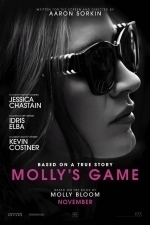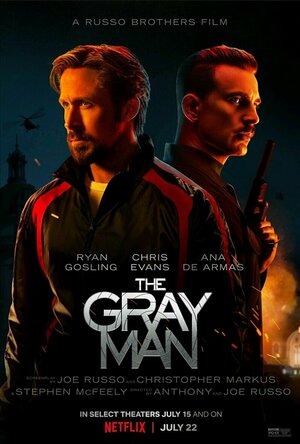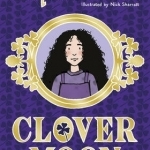Lee (2222 KP) rated Molly's Game (2017) in Movies
Nov 30, 2017
Molly's Game is based on a true story, and the accompanying book written by Molly Bloom. It's written and directed by Aaron Sorkin, writer of, among other things, The West Wing and The Newsroom, so you get a pretty good idea of the quick-witted snappy dialogue that you're in for. Jessica Chastain plays Molly, and she is just absolutely incredible in this movie. Not knowing the basic story it was based on, the opening scenes changed direction so many times that I was left wondering what the movie was actually going to be about and which direction it was headed. Narrated by Molly, we're initially introduced to her life as an Olympic class skier. She describes her younger life training with her stern father (Kevin Costner), the spinal surgery which put her out of action for a while, her fight back to the top and the tragic accident which then put her out of action once more. Then we jump forward 12 years, where Molly is suddenly woken one morning by a phone call. It's the FBI, and they want her to come out of her room within the next few minutes or they're going to break down the door. When she does come out, she is cuffed and arrested for running high-stakes poker games. We then see her in the office of Charlie Jaffey (Idris Elba), a top (and expensive) lawyer who Molly would like to represent her. The remainder of the movie then switches between Molly narrating and filling us in on the events of the last decade or so leading up to now, and Molly and Charlie as they bicker and work together in piecing together her defence.
The first half of the movie is enjoyable as we follow Molly, working her way up from bored secretary to running hugely expensive poker games for the rich, famous and weird in Los Angeles and then New York. As mentioned earlier, Jessica Chastain is simply amazing, given a superb performance as we follow Molly from troubled child to shrewd, intelligent business woman and 'poker princess'. At the height of her game she was legally raking in thousands of dollars each night, and even getting on the wrong side of the Russian mob. However, after a while it all starts to drag a little and I feel the movie could have benefited from a much tighter run time (it's 160 minutes long). Things pick up again towards the end though, and Costner and Elba get their chance to shine. Well worth watching.
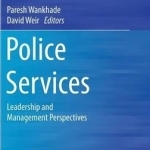
The Police Services: Leadership and Management Perspectives
David Weir and Paresh Wankhade
Book
This volume provides fresh insights and management understanding of the changing role of policing...
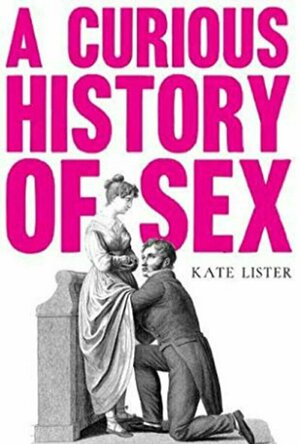
A Curious History of Sex
Book
‘Buckle your trousers, fasten your seatbelts, here comes Kate Lister. Her curious history of sex...
Sex Sexuality History of sex and sexuality Sex Workers History of gynaecology

hCG Diet Life Pro
Health & Fitness and Medical
App
hCG Life is accurately based on Simeon’s hCG weight-loss Diet where many have lost over 20 lbs. in...
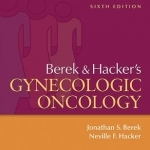
Berek and Hacker's Gynecologic Oncology
Jonathan S. Berek and Neville F. Hacker
Book
Get the evidence-based, practical guidance you need to provide state-of-the-art care to women with...

Ezan Vakti Pro
Lifestyle and Reference
App
***Another first new feature: PRAYER ON TIME: Prayer constantly reminds. Until you say OK. ...
BankofMarquis (1832 KP) rated The Gray Man (2022) in Movies
Aug 6, 2022
Such is the case with the new Ryan Gosling/Chris Evans action flick THE GRAY MAN. It is reminiscent of the MISSION IMPOSSIBLE, BOURNE and JOHN WICK films - and is very enjoyable - but I like the other movies better.
Directed by THE RUSSO BROTHERS (AVENGERS: ENDGAME) and written by Joe Russo, Christopher Markus and Stephen McFeely (writers of AVENGERS: ENDGAME), based on the book by Mark Greaney, THE GRAY MAN stars Gosling (LA LA LAND) as an enigmatic secret agent (is their any other kind) who is sent on a deadly mission that, perhaps isn’t what it seems on the surface (are there any other)?
This is a plot VERY reminiscent of the aforementioned MISSION IMPOSSIBLE, BOURNE and JOHN WICK films and when Chris Evans (CAPTAIN AMERICA, of course) and Ana de Armas (the latest James Bond flick, NO TIME TO DIE) show up as a few other mercenaries who might be on Gosling’s side - or might not - you can’t help but be reminded of those other flicks.
And that’s the trouble with THE GRAY MAN, it just can’t compete (at least in my memory) with those other films, mostly because it doesn’t do anything new. It is your basic “Super Spy” flick, very professionally done, but it isn’t anything you haven’t seen before.
The actors (Gosling, de Armas and Evans) are very good in their roles and have enigmatic (Gosling), out of control (Evans) and mysterious (de Armas) down very well and are ably assisted by wily veterans like Alfre Woodard (CROSS CREEK) and good ol’ Billy Bob Thornton (SLINGBLADE) who seem to having a good time going along for the ride.
And…it’s a fun ride…the action scenes are well done, set-up and choreographed professionally with just enough unique ways to take out a henchman or blow-up some sort of transport to make it interesting to watch, but…again…it’s really nothing new.
An entertaining 2 hours of film-making - and a film that will have a sequel on the way - there are worst ways to spend your time and with good (enough) action sequences and interesting and charismatic performers to watch - THE GRAY MAN suits its purpose…it entertains.
Letter Grade: B+
7 1/2 (out of 10) stars and you can take that to the Bank(ofMarquis)
Hazel (1853 KP) rated Clover Moon in Books
May 24, 2017
Although now in her seventies, the Nation’s favourite children’s author, Dame Jacqueline Wilson, is continuing to write after surpassing one hundred novels. Many children (mostly girls) grow up reading her stories, myself being amongst that number. Even my sister, who hated reading, purchased a number of her books. It has been well over a decade since I last read a Jacqueline Wilson, however after seeing her latest novel was available for review, I thought I would give it a go.
Clover Moon is set in poverty-stricken Victorian London, where eleven-year-old Clover, the eldest of six siblings, lives with her father and stepmother. Like many stepmother’s in children’s literature, Clover’s treats her like a slave – a position she is destined to stay in unless she gets a job in a factory. With no school to attend, Clover becomes a second mother to her younger brother’s and sisters, yet nothing can prepare her for the devastating impact a wave of Scarlet Fever brings. With only an old doll maker who cares about her, Clover is desperate to get out of her situation; so after a chance meeting with an artist who tells her about a home for destitute girls, Clover decides to seek out the help and life she deserves.
Although only eleven, Clover has the responsibilities of someone of a more mature age. It is hard to imagine sending a child out to work, or trusting them to look after a newborn baby. Children reading this book will learn the difference between their lives and the life of a child in the 1800s.
As always, Jacqueline Wilson gives her main character a happy ending – although in this instance it still remains a bit uncertain. Despite the horrible circumstances, Wilson manages to pump her story full of enthusiastic optimism, thus portraying Clover as a strong, determined heroine.
Most of Jacqueline Wilson’s earlier books were set in the present day; there were still unhappy situations, but the settings were based on ideas the reader would be familiar with. In the case of Clover Moon, unless children have been educated about the poor in Victorian England, it is unlikely that they will be able to fully comprehend Clover’s predicament. As a result, the book is more suitable for young teenagers than the usual target audience of eight to twelve year olds.
Comparing my memories of Jacqueline Wilson books I read as a child with her latest publication, Clover Moon felt like something different; a new direction. As I have not read any of her work between the early 2000s and now, I am not sure when this change occurred, but it feels as though Wilson is delving deeper into her main character’s thoughts and feelings, and creating a more insightful storyline. On the other hand, I may simply be more intuitive as an adult than I was a child.
Although Clover Moon did not turn out to be the style of writing I was expecting I thoroughly enjoyed it. In fact, this difference made it possible to distance myself from the author’s renown, and treat it as an individual story. Clover is an admirable character who, through her narration, provides both an entertaining story and brief historical education. Fans of Jacqueline Wilson will not be disappointed with this latest publication; and if you are a new reader, Clover Moon is a great place to start.

myZindagi – Find & Consult Doctor Online
Health & Fitness and Medical
App
myZindagi reduces the distance between patients and healthcare professionals. Connecting doctors &...
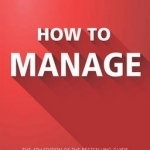
How to Manage: The Definitive Guide to Effective Management
Book
How to Manage has been officially shortlisted in the 'practical manager' category for the 2017...
